
Ana Rita Andrade, MD, a general physician with Master Degree in Medicine, with a decade-long experience in Family Medicine as well as in Palliative Care, is a Director at Kanab Clinic in Vila Nova de Gaia, Portugal. This Clinic, formed by a international and multidisciplinary medical team, uses a successful alternative approach to pharmacotherapy with cannabinoid-based products. In her lecture, she will tell about her vast and ever growing clinical experience with cannabinoids in chronic pain management and in palliative care.
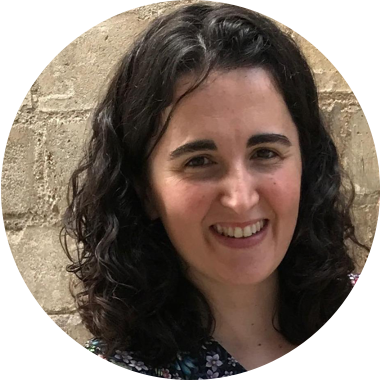
Ester Aso, PhD, is a Doctor in Biology from the Pompeu Fabra University, and is currently an Associate Professor of Pharmacology at the University of Barcelona, Spain. Her research work has focused over the last 20 years on the role of the endocannabinoid system in mental health and, especially, on the therapeutic potential of cannabinoids against neurodegenerative diseases. As a result, she has published more than fifty scientific papers related to cannabinoids and other topics, and has participated in numerous research projects financed with public and private funds. She will dissert about the role of cannabinoid CB1 and CB2 receptors in Alzheimer’s disease and their potentiality as therapeutic targets against this highly prevalent dementia.

Nataliia Aliekperova, PhD, is an Associate Professor of Department of Organization and Economics of Pharmacy, Bogomolets National Medical University, (Kyiv, Ukraine). Author of numerous articles, lectures and scientific materials devoted to the medical cannabis market in Ukraine and abroad. Her lecture will be the interpretation of her survey studies focusing on the perspectives on the formation of the medical cannabis market in Ukraine, based on a holistic approach: 1) Changes in legislation and regulation procedures; 2) Changes to value orientations in society; and 3) Observance of stakeholders’ interests and purposes.
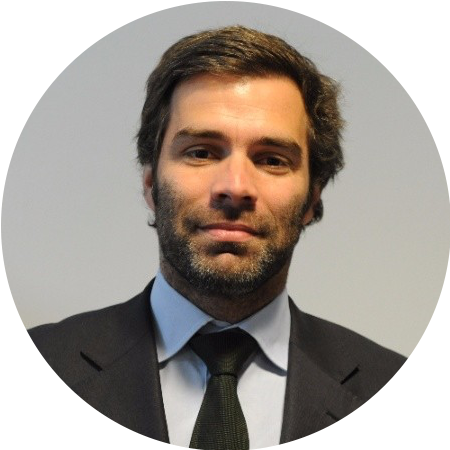
Vasco Bettencourt, JD, Director of the Licensing Unit of the Inspection and Licensing Department of INFARMED. His scope is the licensing of all entities involved in the drug circuit, medical devices, active substances and controlled substances including medical cannabis products for lawful use, provided for in the Statutes and Internal Regulations of INFARMED. His speech will cover the relevant legal and practical aspects of the emerging medical cannabis industry in Portugal which is encompassing an exponentially increasing number of manufacturers and a number of licenced medicines based on cannabis extracts and synthetic cannabinoids.

Maria da Graça Campos, MD, PhD, is Professor at Faculty of Pharmacy, University of Coimbra (FFUC), Portugal and is the Coordinator of the Drug-Herb Interactions Observatory (www.oipm.uc.pt) which includes researchers and students from FFUC, FMUC and FDUC. Her research focuses on drug discovery and pharmacovigilance of drug-herb interactions, mostly with respect to oncology patients. One major goal of her studies is to report clinically and scientifically well-supported interactions and to raise the awareness of health professionals and citizens for this issue. As an expert and/or co-opted member, participates in the work of the Commissions on World Health Organization WHO), European Medicines Agency (EMA) and INFARMED-National Authority for Medicines and Health Products. She has 250 publications, including 3 books, 20 chapters and has given more than 150 conferences. She has been collaborating with 68 institutions, of which 56 were foreign from 22 countries.

Sergi Ferré, MD, PhD, is a neurologist, neuroscientist, neuropharmacologist, and is the Chief of the Integrative Neurobiology Section, National Institute on Drug Abuse, Intramural Research Program, Baltimore, USA. Dr. Ferré pioneered the role of cannabinoid receptor oligomers in in neuropsychiatric disorders, among other prestigious studies. The discoveries of his research group indicate that cannabinoid receptor heteromers are novel targets for drug development. His lecture will address the molecular pharmacology of cannabinoid receptor heteromers in brain diseases.

Julia Florova, MD, Master of Arts in Science and Technology Development, is a clinical dermatologist, aesthetic medicine specialist. She has over 10 years of clinical practice and 4 years of consulting in the medical cannabis industry, from which the last two she holds the position of a Research Project Manager in CVL Pharma. She will discuss with us the company’s innovative approach to skin care via the use of phytocannabinoids, as they are currently developing a pipeline of topical OTC products as additional support of treatment for various dermatological conditions, such as acne, psoriasis, atopic dermatitis etc.

Tibor Harkány, MD, PhD, medical doctor, neuroanatomist, is a Full Professor at the Department of Molecular Neurosciences, Vienna Medical University, Austria as well as at the Department of Neuroscience, Karolinska Institutet, Stockholm, Sweden. He is widely recognized in the fields of endocannabinoid signaling in the developing nervous system together with the molecular mechanisms of psychoactive drug action in the fetal brain. He will share with us his pioneering works that put forward the critical role of cannabinoid receptors in brain development.

Erik Keimpema, has been studying lipid signaling in the developing fetal brain with a focus on cortical pyramidal cells. He investigated endocannabinoid signaling, and how their release and control leads to axonal pathfinding and synaptogenesis. After his PhD, his research interests expanded into neurodevelopmental disorders (Down syndrome, Angelman syndrome) and novel model organisms including the naked mole rat. Currently he is continuing his research on lipid signaling in salivary glands and studies the development of hypothalamic neurons and astrocytes as well as the impact of psychoactive drugs (cannabis) on brain circuit formation and rewiring. His ultimate goal is to understand how psychoactive drugs affect neuronal functioning during developmental processes, and how they can reopen plasticity windows in adult brain circuitry.
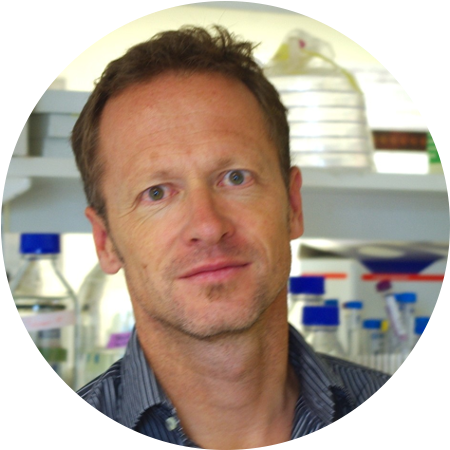
Zsolt Lenkei, MD, is currently an INSERM Research Director in Paris. After graduating with a medical degree in Budapest, he obtained his PhD at the Université Pierre et Marie Curie (Paris VI). In the last years, he became increasingly interested in the understanding of cannabinoid-mediated regulation of neuronal structure. Established techniques range from molecular constructions through imaging-based measurements of GPCR activation in cultured hippocampal neurons to the use of animal models of cerebral plasticity. Current projects of his team are targeted to develop and use new tools to better understand, at multiple spatio-temporal scales, the role of the highly dynamic actomyosin cytoskeleton in neuronal function and neuropsychiatric pathogenesis. One of this new tools, Ultrafast functional Ultrasound (fUS) imaging, also revealed itself as highly adapted to access nervous system function through imaging the neurovascular coupling, so an important part of our current efforts is focused to further develop this powerful tool either in collaborative projects or in-house, the latter focused on imaging the functional consequences of actomyosin remodeling on brain structure and connectivity.
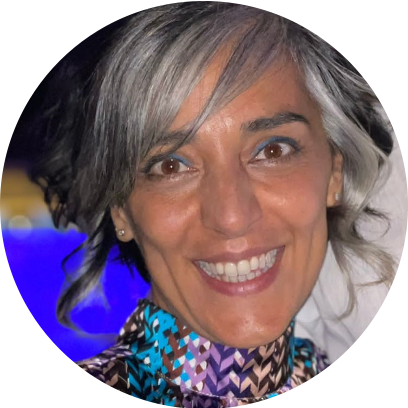
Alessia Ligresti, PhD, is the Director of Research at the Institute of Biomolecular Chemistry (ICB-CNR). She is a medicinal chemist specialized in chemical biology leading a group at the mainly interested in investigating cannabinoid-based therapeutic applications for oncometabolic and neurodegenerative diseases. She earned a MSc degree in Pharmaceutical Chemistry in 2001 and a PhD in Pharmaceutical Sciences, both at the University of Naples. She is an Associate Professor in Biochemistry and Clinical Biochemistry since 2014. She has served as scientific consultant for several pharmaceutical and technological companies [GW Pharmaceutical (London, UK), Embedded Solutions (Napoli, Italy), Allergan Inc. (Irvine, California), Sophos Biotech (Rome, Italy), Entregando Soluciones (Barcelona, Spain), “Cannabinoid Education Programme 360” of Jazz Pharmaceuticals (Dublin, Ireland), Obiettivo Qatar (Doha, Qatar)]. She is co-inventor of 2 patents and has published over 118 scientific articles with key discoveries published in leading journals (H-index: 45, source Scopus).
Her scientific interest focuses on cannabinoids and particularly in investigating new cannabinoid-based therapeutic applications for oncometabolic and neurodegenerative diseases. She has also a longstanding experience in developing selective molecules specifically targeting the expanded endocannabinoid system.

Ken Mackie, MD, is a Distinguished Professor of Psychological and Brain Sciences at Indiana University, Bloomington, IN (IUB) and a Linda and Jack Gill Chair of Neuroscience. He received his MD from Yale University, did his Anesthesiology Residency at the University of Washington, and performed post-doctoral work at Rockefeller University and the University of Washington. For the past thirty years, Dr. Mackie’s research has sought to understand the relationships between phytocannabinoids (such as THC and CBD), terpenes, endocannabinoids, and the pharmacological and physiological responses to both. His lab takes diverse approaches (imaging, electrophysiological, behavioral, molecular, and biochemical) to address these questions.
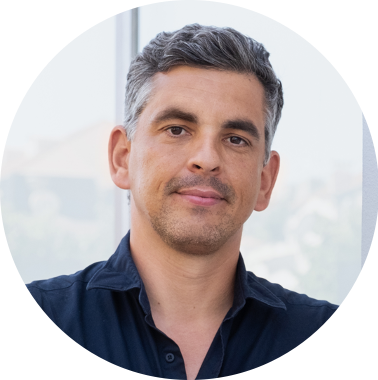
Bruno Maia, MD, is a neurologist, organ donation coordinator, specialist in neurovascular ultrasonography and intensivist at the Centro Hospitalar Universitário de Lisboa Central. He is an activist for the legalization of euthanasia and medical cannabis, a media personality, as well as a candidate for the Presidency of the Order of Physicians (Bastonário da Ordem dos Médicos – brunomaia2023.pt). His talk will clarify the myths and facts around cannabis legalization, using other countries as an example where cannabis has been legalized. He will also give insight about the possible uses of cannabis and cannabinoid formulations in neurology and related areas.
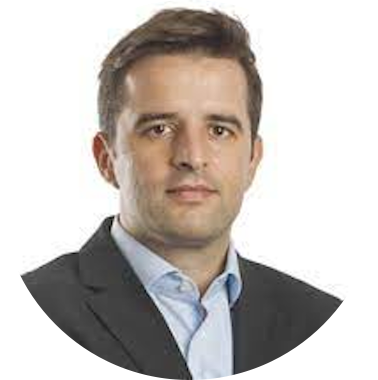
Tiago Reis Marques, MD, PhD, is a general psychiatrist registered in the UK, a former researcher at the King’s College, Senior Clinical Research Fellow at the Institute of Clinical Sciences, Faculty of Medicine, Imperial College, London, and is the CEO of Pasithea Therapeutics, Miami, USA of which mission is to discover new and effective treatments for mental health problems. He is widely renowned for his contribution to research in various fields of psychiatry, including psychosis. His lecture will focuse on mental health conditions that are often associated with heavy marihuana abuse, and if that is relevant or not for cannabis-based medical formulations.

Laura Ramos, Editor-in-Chief at Cannareporter and Cannadouro Magazine, Co-Founder and Program Curator at PTMC – Portugal Medical Cannabis, has a degree in Journalism from the University of Coimbra. Since 2000, she worked as a writer and reporter in several News Media, from the national television (RTP) to newspapers and magazines including Euronotícias, A Capital or Sábado. She was news correspondent for the daily newspaper “Jornal de Notícias” in Rome, Italy, and later a Press Officer at the Ministry of Education. She is co-founder of the Portuguese Observatory of Medicinal Cannabis (OPCM), she directed the documentary “Patients”, on the users of medicinal cannabis that was presented at the Health Commission at the Portuguese Parliament in 2018. She was also involved in the organization of the first Post-Graduate Program for Medicinal Cannabis GMP’s in Portugal, in 2019, in partnership with the Military Laboratory of Chemical and Pharmaceutical Products and the Faculty of Pharmacy of the University of Lisbon.

Katalin Solymosi, PhD is an award winner plant biologist, who graduated at ELTE Eötvös Loránd University, where she works as assistant professor in the Department of Plant Anatomy. Between 2005-2020 she was teaching pharmaceutical botany to pharmacy students of the Semmelweis University. Her scientific interest include plastid metabolites and the role of different plastids in the production of medicinally active ingredients. Being a co-author of a milestone review article about the Cannabis plant, she will discuss the botany, anatomy and phytochemistry of the central subject of our symposium.

Paulo Freitas Tavares, MD, oncologist at the Centro Hospitalar e Universitário de Coimbra, expert in blood cancer, osteosarcoma, immuno-oncology and molecular oncology, is an internationally recognized advocate of the medical use of cannabis, with decades of experience with patients using cannabis either as a palliative or as a disease-modifying medication. His insightful lectures attract wide media coverage and are inspiring for both health care professionals and the laymen.

Raffaella Tonini, PhD, leads the Neuromodulation of Cortical and Subcortical Circuits Lab (https://www.iit.it/lines/neuromodulation-of-cortical-and-subcortical-circuits), at the Italian Institute of Technology, Italy. Her overarching goal is to identify the cellular mechanisms and fundamental principles of synaptic neuromodulation and to resolve the behavioral function, particularly in voluntary movement and decision-making processes, of neuromodulatory signals at circuit-and system-level resolution. With a mechanistic view examining neuromodulator activity on multiple timescales, her lab applies a multiscale neuroscience approach to measure neuromodulatory neuron activity, neuromodulator release and the corresponding cellular effects during behavior.

Sara Xapelli, PhD, is a biologist, an Assistant Professor of Neuroscience at the Faculty of Medicine, University of Lisbon, and is the PI of the group “Control of Neurogenesis and Postnatal Oligodendrogogenesis” in the Neuroscience Unit at Instituto de Medicina Molecular, Lisbon. Her group has described that cannabinoid receptors CB1 and CB2 are key players in the regulation of neurogenesis and oligodendrogenesis in the postnatal brain. In her talk, she will reveal how cannabinoid receptor signaling interacts with neurotrophins to modulate adult hippocampal neurogenesis with respect to Major Depression.